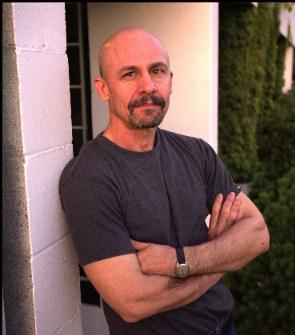The BC Ministry of Health has announced that it will now fund penis-construction surgery for a limited number of transgender men annually under the province’s Medical Services Plan (MSP).
BC’s decision to cover the phalloplasty procedure, which involves taking a graft of tissue from a donor site and extending the urethra, was announced at the Canadian Professional Association for Transgender Health (CPATH) conference in Winnipeg last month.
The province had previously refused to cover phalloplasties, citing a lack of information regarding safety and patient satisfaction, though it began covering other procedures for trans men, such as hysterectomies and mastectomies, several years ago.
“Past research had shown that the success rate was not great,” says Ministry of Health spokesperson Ryan Jabs. “As a result of the most recent review by the ministry, the ministry has decided that MSP will cover a limited number of phalloplasties.”
The procedure is already funded in Alberta, Manitoba, Saskatchewan, Ontario and Quebec.
According to Jabs, the BC Ministry of Health conducted three procedure reviews for phalloplasty in the last eight years, based on data collected through literature and peer research from surgical centres in Belgium, France, Germany and Korea.
“The Ministry of Health is committed to ensuring that British Columbians have access to any and all medically necessary procedures and treatments, while ensuring our system is cost-effective and sustainable,” Jabs says. “Gender reassignment surgery is deemed medically necessary by the fact that gender identity disorder (GID) is listed as a recognized medical condition. Reassignment surgery is considered to be one of the accepted standards of care for GID.”
BC will now fund five people per year for the next five years.
Jabs says the five-year deadline is only a guideline and could be extended.
Although phalloplasty is now MSP-funded, trans men still have to qualify for the procedure and pay their own travel and accommodation costs to reach the Brassard plastic surgery clinic in Montreal where the procedure is performed.
“We cover the full cost of the procedure, but transportation and accommodation for medical services is not insured by the Canada Health Act and is the responsibility of each individual,” Jabs says.
“However, there are programs and companies that may provide assistance with travel costs, such as Hope Air, and we encourage people to contact these companies,” he adds. “In addition, the Ministry of Social Development may also cover medical transportation costs for clients who are receiving social assistance.”
In order to qualify for the surgery, trans men have to produce a letter signed by two designated assessors diagnosing them with persistent, documented gender dysphoria; live for 12 continuous months in the gender role that is congruent with their gender identity; and complete one year of continuous hormone therapy, if needed.
Marie Little, chair of the Trans Alliance Society, says the new funding shows the government is starting to take trans issues seriously, but the number of people funded annually is too small.
“Five is a ridiculously small number, and I have yet to hear how they are going to choose the five. Is it first-come, first-serve?” she asks.
Jabs says the order of procedures will be determined by the waiting list and doctor referrals. “We’ve been keeping the list as part of our review for a number of years,” he says. “It’s based on when we received a referral from a physician for this procedure, and [the procedure] will be provided to those who are at the top of the list based on when the physician referral came in.”
There are two dozen people on the list now, he says.
Little doesn’t buy it. She suspects the list is much longer and says it will continue to grow now that BC has decided to fund the surgery.
Still, Little calls the decision a “breakthrough.”
Spencer Chandra Herbert agrees.
“I certainly think we’ve made progress,” says the gay MLA for Vancouver-West End.
“If we care about equality and we care that trans men have choice in their healthcare, then it’s an important thing today,” he tells Xtra.
“The change isn’t going to affect a massive number of British Columbians, but for those that it does, it is very important,” he adds. “It shows that the health system is starting to recognize who trans folks are and the diversity of their health needs — it’s a win.”
Chandra Herbert says he has been pushing the province to consider funding the procedure but was always told the procedure was “too experimental” to be covered through MSP.
Lukas Walther, former coordinator of Vancouver Coastal Health’s Transgender Health Program, says he too has lobbied the government for phalloplasty funding because it “saves lives.”
“This [procedure] is about completion,” says Walther, who is trans. “Not every female to male trans needs it, but for the ones that identify as male, it’s the same as us wanting both of our ears and all of our digits. We need that piece to feel complete.”
Walther underwent phalloplasty in 2003 and paid for the $20,000 procedure, which he had done in Alberta, out of his own pocket.
“It was about me feeling complete,” he says. “It was about me feeling the body congruent, finally.”
Jabs says the BC Ministry of Health will begin contacting individuals on the waiting list immediately.

 Why you can trust Xtra
Why you can trust Xtra


